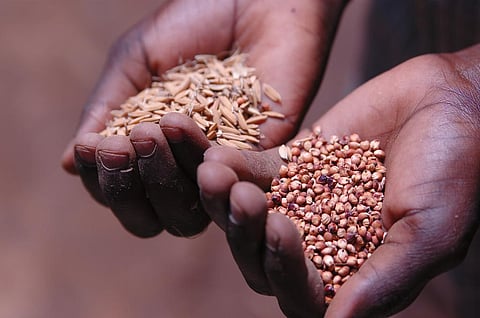

Families in Southern Africa, affected by the El Nino-induced drought, were forced to marry off their daughters in exchange for food, according to a policy brief released by ActionAid, an international non-governmental organisation.
The El Nino event of 2023-24 led to extensive drought conditions throughout southern Africa, marked by delayed rainfall, prolonged mid-season dry periods, and exceptionally high temperatures.
El Nino usually causes increased heat and dryness in southern Africa, but this season experienced unprecedented dry conditions in numerous regions.
As many as 23 out of 28 districts in Malawi were hit by the El Nino conditions and a preliminary assessment by the government estimated that up to two million farming households and 44 per cent of the national cropping area have been affected. In Zambia, one million hectares of the 2.2 million hectares planted with maize were affected.
According to the United Nations Office for the Coordination of Humanitarian Affairs, this is the worst drought the region has seen in 100 years.
An estimated 56.8 million people are currently food insecure in the region, consisting of the twelve Member States (Botswana, Democratic Republic of Congo, Eswatini, Lesotho, Madagascar, Malawi, Mozambique, Namibia, South Africa, Tanzania, Zambia and Zimbabwe) that provided results of their assessments, according to the Southern African Development Community (SADC) Regional Vulnerability Assessment and Analysis Programme Synthesis Report for the 2023-24 season.
The policy brief titled Mitigating Protection Risks for Young Women in Southern Africa: Policy Responses to Drought-Induced Crises revealed how the drought has severely impacted young women and girls, worsening existing inequalities.
This summary utilised a literature review of recent findings and conducted detailed, qualitative interviews with seven young women across three southern African nations (Zimbabwe, Malawi, and Zambia) to examine the impact of droughts on their lives and propose significant policy reforms to enhance their well-being.
The women and girls interviewed in the area depicted a bleak scenario, highlighting the adverse effects on their well-being, including health, nutrition, and education.
The policy brief identifies several obstacles to drought recovery, including financial exclusion, educational disruption, gender-based violence, health and nutrition issues, migration and displacement as well as limited access to services.
The drought has negatively impacted the economic opportunities of many farming communities, leading families to resort to harmful survival strategies like forcing girls into early and arranged marriages.
The policy brief emphasised the urgent need for specific interventions to protect and empower young women in the region. ActionAid urged the leaders of SADC to implement, adhere to, monitor and report on agreed gender equality and women's empowerment principles and provisions to ensure the protection of young women and girls from crises such as drought.
The prevailing situation in the region demands a comprehensive gender analysis on the impact of the drought on women and girls, which is crucial to ensure that governments’ interventions do not miss the mark, Mabenge added.
The policy brief released ahead of the SADC Ordinary Summit of Heads of State and Government.
The Summit took place on August 17, 2024 in Zimbabwe’s capital city, Harare.